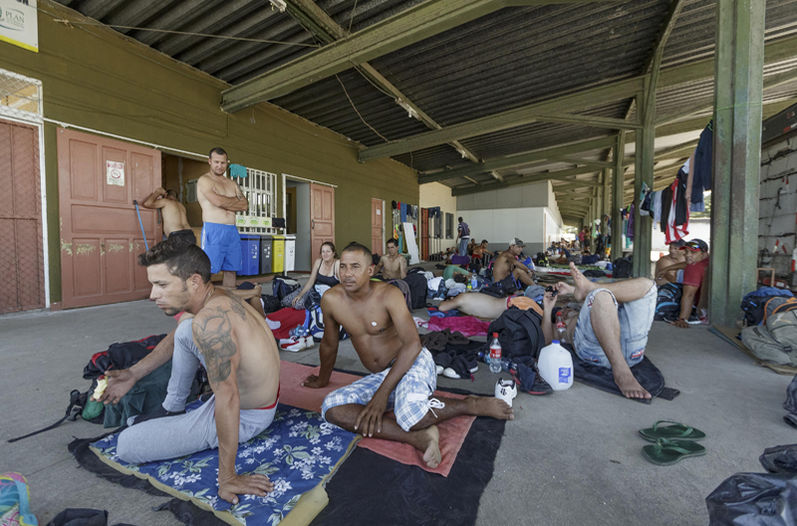This Tuesday, Mexico hosted a meeting to address the situation of Cuban migrants, in which the nations of the area participated, together with representatives from Ecuador, Colombia, the USA, Cuba, and IOM representatives
The Cuban delegation reiterated that all Cuban citizens who wish to return to the island are welcome to. Representatives also urged the U.S. government to change its migratory policy toward the island, which would make a major contribution to solving the problem.
Speaking to the EFE news agency, Costa Rican Foreign Minister Manuel González noted that as a result of diplomatic talks, “there could possibly be an opening in the next meeting which was scheduled for December 28, this meeting will take place in Guatemala or if not, in Mexico.”
“Mexico has expressed its readiness that once they (Cuban migrants) reach its borders, it would allow them to pass and continue their transit to the United States,” González said.
He also referred to statements by the U.S. representative at the meeting, who confirmed that his government will maintain the so-called “wet foot-dry foot” policy, by which the U.S. accepts Cubans arriving by land on its border.
The predominant view at the meeting was that the origin of the current situation is the preferential treatment Cuban migrants receive on arriving in the United States, regardless of the route used. In a similar vein, the majority of the delegations were in favor of increasing efforts to tackle people smuggling and human trafficking.
“Involving all stakeholders is a step in the right direction as this issue impacts beyond the realm of the Central American Integration System (SICA), as we had stated from the start. This is the means to finding a comprehensive solution,” González added.
Costa Rican President Luis Guillermo Solís, announced last Friday his withdrawal from the SICA political discussions and reported that his country had stopped issuing temporary visas to Cuban migrants arriving in its territory. Since December 19, those attempting to enter the country illegally will be deported.
Meanwhile, the Nicaraguan government issued a statement on Friday demanding the U.S. government respect the human rights of Cuban citizens who embark upon a perilous journey in order to reach U.S. soil, while at the same time demanding the elimination of the “wet foot-dry foot” policy and the suspension of the Cuban Adjustment Act.
Nicaragua also demanded the United States provide “solutions for the immediate and safe transportation to its territory of the thousands of Cuban citizens trapped along this dangerous route,” while the President of Guatemala, Alejandro Maldonado, requested that the U.S. extend the benefits of its migration policy toward Cuba to other countries in the region.
 Escambray ENGLISH EDITION
Escambray ENGLISH EDITION






Escambray reserves the right to publish comments.